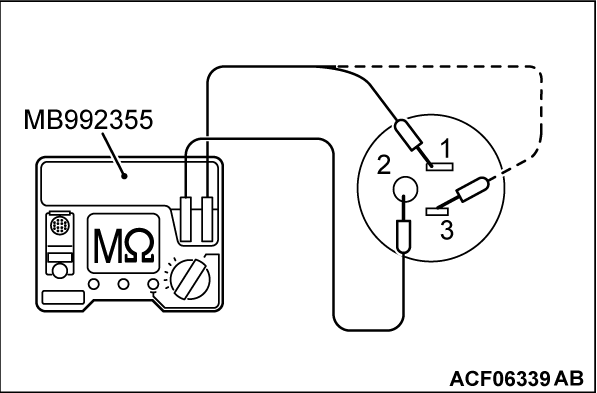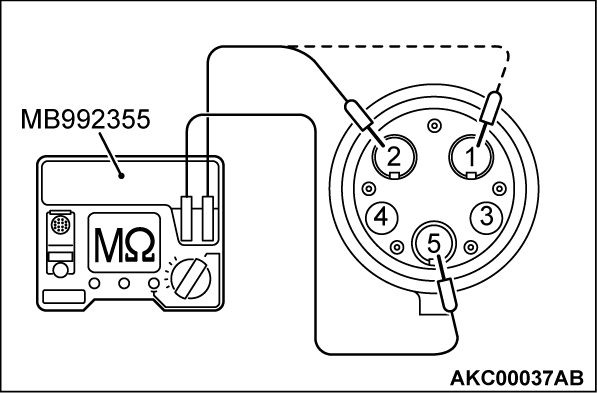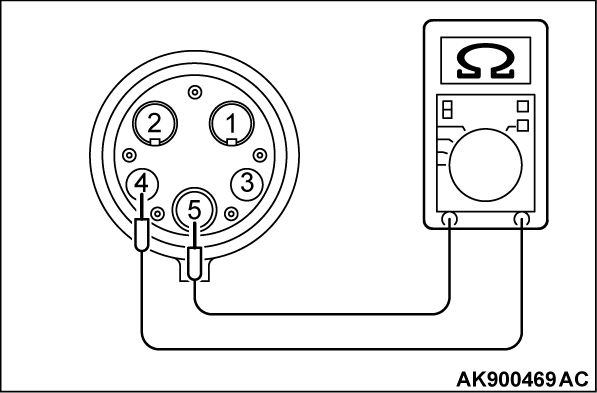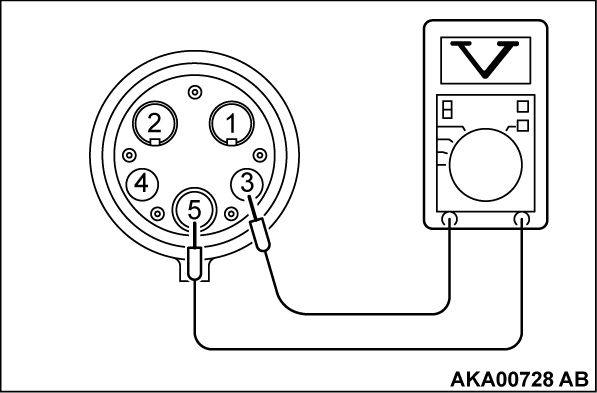CHARGING CABLE CHECK
- MB992355: Electric Insulation Tester
Required Special Tool:
Visual check
1. Check the charging cable for the following items. If an abnormality is found, replace the charging cable.
- Damage, corrosion or rust of cable, normal charging connector or plug
- Excessive play or strain of normal charging connector or plug terminal
- Packing deviation
Check on insulation resistance
| caution | When the insulation resistance is measured, set the range of the special tool MB992355 to 250 volts. When the insulation resistance is measured at the range more than 250 volts, the component may be damaged. |
1. Use the special tool MB992355 to measure the insulation resistance at the plug side with the range of 250 volts.
Standard value:
|
2. Use the special tool MB992355 to measure the insulation resistance at the normal charging connector side with the range of 250 volts.
Standard value:
|
3. If the resistance deviates from the standard value, replace the regular charging cable.
Check on normal charging connector built-in switch
1. Measure the resistance between the normal charging connector terminal No. 4 and the terminal No. 5.
standard value:
|
2. If the resistance deviates from the standard value, replace the charging cable.
Check pilot signal terminal
1. Connect the charging cable with a home socket.
2. Use the analog voltmeter from the normal charging connector side to connect the pilot signal terminal between the terminal No. 3 and the terminal No. 5. Measure the output voltage.
Standard value: approximately 12 V
3. If the voltage deviates from the standard value, replace the charging cable.
![[Previous]](../../../buttons/fprev.png)
![[Next]](../../../buttons/fnext.png)



